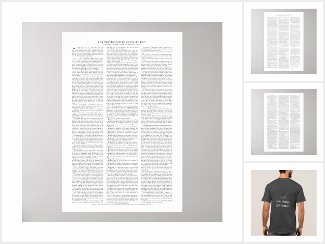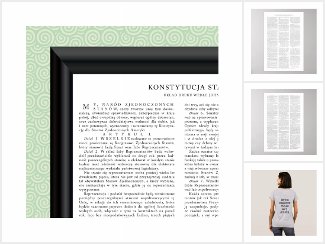For minds and hearts, the difference between the Progressive and the Simple may be as that between joy and sadness. To say, “I am hating you”, could be a joke. Saying, “I hate you”, might declare hatred.
There are grammar books to tell about “stative” or “static” verbs: that we should never use them with the Progressive, and that phrases as “I am loving” or “I am hating” are incorrect.
In fact, such phrases do occur also in educated styles, and without the brain, the heart is just a muscle.
Let us begin along the classic lines. Most resources put “stative” or “static verbs” in groups. We may begin with our senses. The verbs would be as to feel, hear, look, perceive, see, sense, smell, sound, or taste.
When we want more words, we can use a thesaurus.
We have correlated the Simple with the variable {ON}, to regard a cognitive extent entire, and the Progressive with the variable {IN}, for an area or part of a cognitive extent.
8. She feels cold. {ON}
(She feels bodily cold.)
The matter is about cognitive, and not about bodily extents only:
8a. Only the toe feels cold, she says;
(the variable {ON} is for an entire extent and there is much more to her than the toe, yet it is a cognitive extent entire she grants to feeling own body).
The matter is not about extents in time, either:
8b. The wind feels cold now.
8c. The northern wind always feels cold.
The Progressive can help tell we are using our sense of touch:
8a. She is feeling her temperature. {IN}
(She is using palpation.)
Our moods yet may be dynamic. One might ask,
8c. How are you feeling? {IN}
(How are you taking your own condition, mood?)
To convey the same meaning, the question also could be,
8d. How do you feel? {ON}
The matter is not about the sense of touch and well, the way we feel about answering may depend on who asks the question.

Everyday language often has the Modal verb can, to tell about the senses. It brings a connotation as that we reflect on what we perceive:
9. I can feel something strange.
~ I (think I) feel something strange. {ON}
9a. I can see something.
~ I (realize I) see something. {ON}
The Modal may also bring connotation with change or need for change:
9b. Things can look better. {ON}
(Things do not really look good; it needs to stop raining.)
American English today has many phrasal verbs. Word sense may differ, as with to see about (to arrange for something), or to look for (to search for, or want something).
We may catch on a bit of language when we get to hear or see it. We may catch on to a bit of language and learn it.
If we come across something or someone, we meet or find them, often by chance. When we look up dictionaries, we read them. If we look to something, we consider it.
Let us compare a few examples.
10. What are you looking at?
(What are you viewing?) {IN}
10a. What are you looking for?
(What are you seeking?) {IN}
10b. She is seeing about getting the new house.
~ She is arranging for the purchase of the house. {IN}
Change in the cognitive variable may bring change in verb sense:
10b. She is seeing him tomorrow.
~ She is meeting him tomorrow, {IN};
Aspect Simple is the most usual for the verb to see, variable {ON}.
11a. They are hearing new candidates now.
(They are interviewing or auditioning them.) {IN}
11b. You are hearing things.
(Your nervous system is producing delusions.) {IN}
Word sense depends on the context as well as the speaker’s intentions. In linguistics, we call it the locutionary intent.
12. You look great now! {ON}
(I like your appearance now.) {ON}
English is as honest as any other language ― in fact, innocent lies are “white lies”. Imagine a boss wearing a horrible suit. What might he or she hear?
“Interesting, boss”. “Chic.”
“White lies” are usually brief utterances. There is always the hazard of extensively praising someone who is just telling friends from foes.

Human noses make quite a regular sense. As for all senses, we can speak about smell with an open time frame, use the verb can, as well as choose the variable.
13. I can smell something nice.
~ I smell something nice.
13a. The roses smell beautiful. {ON}
13b. She is smelling the roses.
(She is using her sense of smell.) {IN}
13c. She has never smelled anything more portending savor. {TO}
(An irresistible scent is coming from the kitchen.) {IN}
ADVERTISEMENT
Spring Flowing Colors
Psycholinguistics says there is always an emotional component in human learning and thinking. To learn something does not mean to love it or hate it, but if we choose to learn something, it is good to think about the advantages.
We people remember pleasurable experiences much better than unpleasant impressions. Our senses are not our feelings directly, yet human emotionality may require some diplomacy about perception.
However tolerant to the verb can, our senses happen to be delicate. If we say,
14. It smells here;
we are going to be close to saying,
14a. It stinks here. TABOO
As this could be an ugly and unpleasant thing to say, we can mark such socially uncertain expressions as TABOO.
We might be quite agreeable, taking some responsibility for own perception
(as liable as we might reasonably get to be):
14b. I (think I can) smell something.
Let us focus on our taste buds for the while:
15. I can taste some nice flavor in this.
~ The drink tastes nice. {ON}
15a. He is tasting the drink.
(He is trying it.) {IN}
Our senses, feelings, and thoughts belong with our cognizance. When we perceive, feel, or think, we usually stay ON our notional grounds.
When we use our senses, we may choose to have only part of a cognitive extent for our view; the variable {IN} marks that we do not mean an entire extent.
Let us compare the two variables,
16. What are you looking for? {IN}
16a. What is it you look for in life? {ON}
The variable {ON}, to tell what we look for, cognitively makes an impression broader than the variable {IN} to tell what we are looking for. Let us continue with…
Feelings!
We cannot really speak a language if we are unable to talk about our feelings in it. We can present verbs for emotion in pairs of antonyms, that is, words of opposite meanings.
Thesauruses (or thesauri) may use abbreviations, as ant for antonyms, and syn for synonyms.
Psycholinguistics says we are all language users. Never leaving home, we can speak about space flight, climbing Mount McKinley, or diving in the Milwaukee Deep. Antonyms for emotion do not vex us.

admire, adore, cherish ~#~ detest, disdain
appreciate, esteem ~#~ disregard
benefit, favor ~#~ cost
dare ~#~ fear
desire, relish ~#~ abhor, reject
like ~#~ dislike
love ~#~ hate, loathe
prefer ~#~ reject
respect, revere ~#~ disparage
want, wish ~#~ have no relish in / taste for
We people are language users with regard to thinking and other activities or experiences as well. We can speak about Benjamin Franklin, the wave theory of light, or a Pulitzer Prize author, never getting to all the details of the lives, theories, and works.
We can try pairs of synonyms with verbs for human thought. Synonyms are words close in meaning; we yet cannot always use them interchangeably.
accede, agree ~#~ admit, consent
appreciate ~#~ realize
assume ~#~ presume, stipulate
believe ~#~ consider, suppose
expect ~#~ think likely, count upon
feel ~#~ hold, think
forget ~#~ become oblivious of, overlook
know ~#~ be aware of, remember
mean ~#~ intend
object ~#~ disapprove
perceive, sense ~#~ consider, recognize
see ~#~ comprehend, understand
think ~#~ cerebrate
Let us put our words for property together with synonyms and antonyms for us, sometimes rich and sometimes not-so-affluent people who learn.
belong ~#~ be part of, pertain to ~#~ be exclusive of
have, hold, own ~#~ possess, retain ~#~ be devoid of
owe ~#~ be indebted ~#~ be creditor to
vest ~#~ charge ~#~ cost
Properties (in the plural) are features or characteristics.
appear ~#~ look, seem
concern ~#~ be of interest to, relate to
consist ~#~ be composed of, be made up of
consist ~#~ exist
contain ~#~ hold or include within
hold ~#~ remain (valid, true)
matter ~#~ be of importance
signify ~#~ imply, mean
sound, look ~#~ convey an impression
To feel is a very interesting verb. We might say, “I feel fresh”, to speak about our senses. We could say, “I feel love”, to speak about our emotions. We also could say, possibly in another context, “I feel this is stupid” [TABOO], to tell what we think.

At ■WORDNET.PRINCETON.EDU, there is a project with the US National Science Foundation, WordNet. It is free to use, according to the license. Resources like WordNet can help view vocabulary in a connected way.
It is not only grammar as here; it is standard and natural language, to associate feeling and thought with spatial variables. “High on emotion” or “in the deepest of our thoughts”, we need some of the notions for space to reckon on time — and feeling along with thought.
Some 200 years ago, there were no words or phrases as spatialization or a cognitive variable, but there were language uses as here:
The advice nearest to my heart and deepest in my convictions is that the Union of the States be cherished and perpetuated — James Madison, the 4th President of the United States.

We can find resources about American presidents at ■WHITEHOUSE.GOV, the website of the President’s home. It is enough that we type “presidents” in the search field.
Classing verbs befits behaviorist analyses more. Our perspective is psycholinguistic: we stay with cognitive variables and recognize verb uses.
We grant our cognizance {ON} life and living entire extents; we select from view, to talk about matters {IN} progress, and we highlight time spans {TO} extents we consider relevant.

We can have stative uses of verbs, but we do not select and list verbs never to get along with the Progressive. On psycholinguistics, feel welcome to the grammar grapevine:

Grapevine: The way we have worked
Folks, there is always going to be some psychology that people tackle you with. We have seen it so often, that we’ve come to terms. We only mind if the psychology is something we can like, a Dr. Seuss you know, some essence. ■More
Feel also welcome to some practice for the mind and the heart.
■7.1. EXERCISES: THE SIMPLE OR THE PROGRESSIVE
■This text is also available in Polish.
ADVERTISEMENT
Book format in preparation.
In the first part of the language journey, feel welcome to consider a picture for
■ the grammatical Past, Present, and Future;
■ the Simple, Progressive, and Perfect;
■ infinitive, auxiliary, and head verb forms;
■ the Affirmative, Interrogative, Negative, and Negative Interrogative;
■ irregular verbs and vowel patterns: high and low, back and front.
Third edition, 2025.



The world may never have seen her original handwriting, if her skill was taken for supernatural. Feel welcome to Poems by Emily Dickinson prepared for print by Teresa Pelka: thematic stanzas, notes on the Greek and Latin inspiration, the correlative with Webster 1828, and the Aristotelian motif, Things perpetual — these are not in time, but in eternity.
■Free access, Internet Archive
■E-pub | NOOK Book | Kindle
■Hard cover, Barnes & Noble | Lulu

Psycholinguistics
Linguistics
& Translation
Knowledge gains with good translation
■Public Domain
Translation. com
American English & Polish

Internet Archive,
the free text and image repository
■Feel welcome to use my free materials■
The posters are available to shop online as well.







